On the Issue of "Defective Admission" of Partnership Private Equity Funds from the Perspective of Supreme Law Precedents
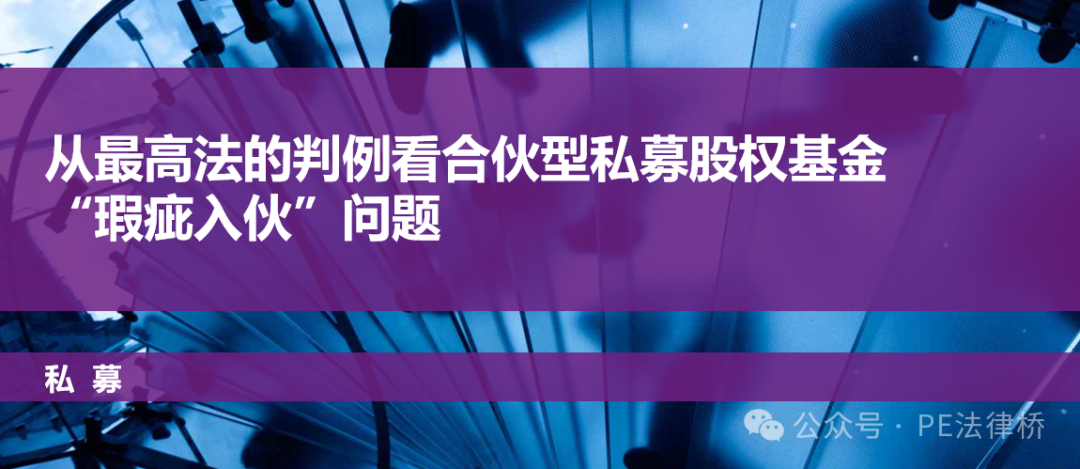
As we all know, for a limited partnership, the executive partner has the right to conduct partnership affairs on behalf of the partnership. Then, how broad is the extension of the "partnership affairs" it has the right to perform? Does it include deciding on the admission of new partners? In response to this problem, the Supreme People's court has given a clear answer to the "contract dispute case of Pingxiang Dongfang HuiFu investment center and Pingxiang shanbang capital investment management partnership". This paper intends to analyze the trial ideas of the Supreme People's Court on the case, in order to provide a useful reference for the majority of private equity funds and their managers, as well as investors who intend to invest in private equity funds.
One
Main Facts
In March, 2016, Pratt&Whitney signed the partnership arrangement agreement with Shenzhen HuiFu, agreeing that the company would contribute 90million yuan to Pingxiang HuiFu, the sole general partner and executive partner of Shenzhen HuiFu, to participate in the round B equity financing of LETV sports. If Shenzhen HuiFu fails to ensure that the new partner Putai company and the existing partner of Pingxiang HuiFu sign the partnership agreement approved by the new partner, Shenzhen HuiFu shall ensure that Pingxiang HuiFu returns the amount paid by Putai company and bear joint and several guarantee liabilities to Putai company for the return of investment funds. At the end of the partnership arrangement agreement, the official seal of the general partner Shenzhen HuiFu and the new partner Putai company and the private seal of the legal representative are stamped. Putai company paid 90million yuan to Pingxiang HuiFu on the same day.
In August 2016, Shenzhen HuiFu transferred all its interests in Pingxiang HuiFu to shanbang capital, which became the sole general partner and executive partner of Pingxiang HuiFu. On February 20th, 2017, shanbang capital signed a limited partnership agreement with Pratt&Whitney, confirming that Pratt&Whitney was the new limited partner of the partnership, and that the 90million yuan paid by Pratt&Whitney had been fully used for equity investment in LETV sports. The "directory" part of the limited partnership agreement indicates that the agreement mainly includes: the establishment of the partnership, business purpose and scope, partners and their basic rights and obligations, as well as Annex 1 list of original limited partners and Annex 2 list of new limited partners. Article 5 of the "whereas" part of the limited partnership agreement states that the partners listed in Annex 2 joined the partnership on February 20th, 2017 and became limited partners of the partnership. The agreement also stipulates that shanbang capital will act as the executive partner of Pingxiang HuiFu; If the partnership fails to successfully complete the change registration of the partnership within three months from the date of signing the agreement due to reasons other than the new limited partner, the paid in capital contribution of the new partner and the interest on bank deposits in the same period shall be returned in full within one month from the date of confirming that the partnership fails to successfully complete the change registration. Article 20.8 of the limited partnership agreement stipulates that "this Agreement shall be signed by each partner on the date indicated at the beginning of this Agreement and shall take effect on the date of signing this agreement." the official seals of the general partner shanbang capital and the limited partner Putai company and their personal seals of representatives are stamped at the end of the limited partnership agreement. In addition, the limited partnership agreement has no signature or seal of other limited partners.
In March, 2017, Putai company (Party B) signed a supplementary agreement with shanbang capital (Party A) and Shenzhen HuiFu (Party C). If Party A fails to change Party B to be registered as a limited partner of the partnership in the relevant industrial and commercial authorities for its own reasons within 30 working days from the date of signing, Party A shall urge the partnership to return Party B's paid in capital contribution and pay Party B a penalty of 1.8 million yuan, And Party C shall be jointly and severally liable for the breach of contract by Party A. At the end of the supplementary agreement, the official seal and the private seal of the representatives of Party A, Party B and Party C shall also be affixed.
Within the above agreed period, Putai company was not registered as a limited partner of Pingxiang HuiFu, so Putai company sued to require Pingxiang HuiFu to return its investment money and pay interest, and required shanbang capital and Shenzhen HuiFu to bear joint and several liability for this. Pingxiang HuiFu said in the first instance of this case that the reason why it did not handle the partner change procedures was that shanbang capital had been communicating with the original limited partners on the relevant agreement for the partnership of Pratt&Whitney, and the original limited partners had objections to the relevant provisions that Pingxiang HuiFu should return the investment money and interest to Pratt&Whitney if it failed to handle the change registration on schedule.
Two
Referee Opinions and Analysis Opinions
1. Is the admission of new limited partners within the scope of partnership affairs?
The Supreme People's court held that, according to general trading practices, the title and signature of the agreement signed by others on behalf of the partnership should be in the name of the partnership and stamped with the seal of the partnership. Although the determination of whether the executive partner executes partnership affairs on behalf of the partnership can be based on the compatibility between partners, it does not mean that any transaction conducted by the executive partner belongs to the scope of executive partnership affairs. Generally speaking, partnership affairs do not necessarily include the admission and withdrawal of partners. This is also confirmed by the fact that the partnership law classifies the entry into partnership, withdrawal from partnership and the execution of partnership affairs into two sections, and separately stipulates that article 43 "unless otherwise agreed in the partnership agreement, the entry of new partners shall be subject to the unanimous consent of all partners and a written entry Agreement shall be concluded in accordance with the law".
Back to the case, first of all, according to the limited partnership agreement involved in the case, the admission of new partners should be unanimously agreed by all partners; Secondly, the signing subject of the partnership arrangement agreement involved in the case does not include Pingxiang HuiFu. Article 5.3 of the agreement stipulates that "the general partner shall ensure that the partnership returns the money paid by the new partner and bear joint and several guarantee liabilities". In addition, the agreement is not stamped with the official seal of Pingxiang HuiFu. The Supreme People's court therefore held that as far as Pingxiang HuiFu is concerned, the partnership entry of its partners must be unanimously agreed by all partners, and Shenzhen HuiFu did not sign the partnership arrangement agreement on behalf of Pingxiang HuiFu in the name of its executive partner, but signed the agreement as a general partner of Pingxiang HuiFu. Therefore, the series of partnership arrangements between Shenzhen HuiFu and Putai company for Pingxiang HuiFu, including the signing of the partnership arrangement agreement and the supplementary agreement involved in the case, are not the scope of the executive partnership affairs of Shenzhen HuiFu as the executive partner of Pingxiang HuiFu, and these agreements are not effective for Pingxiang HuiFu. We note that Shenzhen HuiFu is the only general partner and executive partner of Pingxiang HuiFu. The Supreme People's court should judge the identity of Shenzhen HuiFu when signing the partnership arrangement agreement and the supplementary agreement from the text of the terms.
With regard to the decision-making of new partners' joining the partnership, the dispute over the partnership agreement between Wang Tao and Yunnan kunyao Investment Co., Ltd. [(2020) Jing 03 min Zhong No. 9299] also supports the above view of the Supreme People's court from the opposite side. In this case, because all partners of the partnership involved in the case have clearly authorized the executive partner to decide on the admission of new partners in the partnership agreement, the courts of first and second instance both determined that the admission of new limited partners involved in the case was deemed to have been unanimously agreed by all partners. Based on this case, it can be concluded that if the executive partner has not obtained the authorization of all partners of the partnership to decide to enter the partnership, and the partnership agreement of the partnership has no relevant agreement that the executive partner can fully decide the entry of new partners, the signing of the entry arrangement agreement between the executive partner and the limited partner proposed to enter the partnership may be regarded as the scope of non-executive partnership affairs, and the entry arrangement between the executive partner and the partner proposed to enter the partnership has no effect on the partnership.
2.What is the effect of the limited partnership agreement signed by the executive partner and the proposed investor?
The court of first instance and the court of second instance in this case both affirmed the nature of the partnership arrangement agreement, the limited partnership agreement and the supplementary agreement, especially the limited partnership agreement, involved in this case. The court of first instance held that the three agreements were essentially Partnership Arrangement agreements. The court of second instance held that the nature of the limited partnership agreement should be a partnership agreement, rather than a partnership agreement or partnership arrangement agreement. The reasons for the Supreme People's court's decision mainly include two points: first, Article 18 [1] of the partnership law stipulates the matters that should be stated in the partnership agreement, which highly coincides with the main contents of the agreement stated in the "directory" part of the limited partnership agreement in this case, so the limited partnership agreement should be a partnership agreement in nature. Secondly, the "whereas" part of the limited partnership agreement says that "the partnership resolution on February 20th, 2017 was signed by the partners listed in Annex 2 and became the limited partners of the partnership." according to the meaning of this expression, whether to agree to the partnership of Pratt&Whitney is not the content of the limited partnership agreement, so the limited partnership agreement is not the partnership agreement or the partnership arrangement agreement.
Based on the above findings, the Supreme People's Court further held that, according to the provisions of paragraph 1 [2] of Article 19 of the partnership law and the provisions that the parties to the agreement are all partners in the beginning of the limited partnership agreement involved in the case, and in combination with the relevant provisions of article 20.8 of the agreement that "this Agreement shall be signed by all partners on the date indicated at the beginning of this Agreement and shall take effect on the date of signing this Agreement", the case involved the limited partnership agreement Since it was not signed and sealed by all partners of Pingxiang HuiFu, it was not established and effective.
3.In the case where the limited partnership agreement has not taken effect, what should be done with the investment money paid by the proposed investor?
In this case, Pingxiang HuiFu actually accepted 90million yuan paid by Putai company and has made investment in accordance with the agreement on partnership arrangement. As mentioned above, the Supreme People's court found that the partnership arrangement agreement did not take effect for Pingxiang HuiFu, the limited partnership agreement and its supplementary agreement involved in the case were not established and effective, and Shenzhen HuiFu and shanbang capital did not perform partnership affairs on behalf of Pingxiang HuiFu when signing the three agreements with Putai company, so it rejected Putai's claim for Pingxiang HuiFu to return 90million yuan of investment funds, And further believes that Putai's claim to require shanbang capital and Shenzhen HuiFu to bear joint and several guarantee liabilities according to the agreement is also not tenable. However, the Supreme People's court only determined that the three agreements involved in the case did not take effect for Pingxiang HuiFu, but did not clarify the legal consequences of the failure to take effect, as well as the nature and treatment of the 90million yuan invested by Putai capital in Pingxiang HuiFu. From the perspective of the conclusion of the case, it's a pity. Here we try to discuss these issues:
First of all, from the perspective of the legal consequences of the ineffective contract, according to Article 157 [3] of the civil code, the parties to the ineffective contract should bear the legal consequences such as the obligation of property return and the liability for damages. However, in this case, Pingxiang HuiFu, who actually obtained the investment money, was not a party to the ineffective contract (including the partnership arrangement agreement, the limited partnership agreement and its supplementary agreement), so Putai company could not request Pingxiang HuiFu to return the investment money of 90million yuan that had been paid in accordance with the rules of the civil code on the treatment of ineffective contracts.
Then, since Pingxiang HuiFu is not a party to the partnership arrangement agreement, the limited partnership agreement and its supplementary agreement, does its receipt of 90million yuan remittance from Pratt&Whitney fall within the scope of obtaining improper interests without legal basis as stipulated in the civil code? Can Putai company request Pingxiang HuiFu to return the 90million yuan it paid in accordance with the relevant provisions of the civil code on unjust enrichment? From the facts identified in the judgment, the partnership arrangement agreement and the limited partnership agreement signed and sealed by shanbang capital and Putai company specify that Putai company has paid 90million yuan to participate in the round B equity financing of LETV sports, and has fully completed the investment. Therefore, Pingxiang HuiFu collected 90million yuan paid by Putai company and used it for equity investment in LETV sports, which is objectively based on a contract and is not unjustifiable. Then, under the arrangement of shanbang capital and Shenzhen HuiFu, what kind of legal relationship has Putai formed when the partnership arrangement agreement, limited partnership agreement and its supplementary agreement are not effective for Pingxiang HuiFu through Pingxiang HuiFu's investment in LETV sports? Is it the entrusted shareholding relationship between Putai company and Pingxiang HuiFu? Or did shanbang capital form a new partnership with Putai? Or is there a better explanation? The Supreme People's court avoided this issue, did not analyze it, and naturally did not deal with it, but left us questions. From the perspective of Putai company, it has achieved the goal of investing 90million yuan in LETV sports. Whether the investment is successful or not, it should not claim to return the investment money. In this regard alone, it is undoubtedly correct that the Supreme People's court did not support its request for Pingxiang HuiFu to return the 90million yuan of investment money paid. As the principal claim was not supported, Putai's claim to require shanbang capital and Shenzhen HuiFu to bear joint and several guarantee liabilities under the agreement could not be supported.
However, although Putai company has achieved the goal of investing 90million yuan in LETV sports, after all, it has not been registered as a limited partner of Pingxiang HuiFu, and its limited partner status has not been recognized by the original limited partner of Pingxiang HuiFu, that is to say, Putai company has no legal status in Pingxiang HuiFu. How should this problem be solved? Or how to investigate the legal liability of the relevant parties? The Supreme People's court did not handle the case based on the principle of no action or no response. In this case, Shenzhen HuiFu, shanbang capital and Putai are the signatories of the three agreements involved in the case (Partnership Arrangement agreement, limited partnership agreement and its supplementary agreement). Should they bear corresponding legal liabilities for this issue?
In this regard, we can go back to Article 157 [4] of the civil code to see the liability for fault compensation of ineffective contracts. In this case, Shenzhen HuiFu and Putai company agreed on Shenzhen HuiFu's obligation to guarantee the signing of the partnership agreement between the new partner and the original partner in the partnership arrangement agreement; The limited partnership agreement signed by shanbang capital and Putai company stipulates the relevant obligations of shanbang capital as the executive partner (including registering Putai company as a limited partner); The three parties further signed the supplementary agreement, which stipulated the obligations and responsibilities of shanbang capital and Shenzhen HuiFu. Shanbang capital and Shenzhen HuiFu are obviously at fault for the failure of the agreement to take effect and the failure of Putai company to be registered as a limited partner. However, when signing the limited partnership agreement involved in the case, Pratt&Whitney should know that the limited partnership agreement will take effect only after it is signed and sealed by all partners of Pingxiang HuiFu, and it is possible to register Pratt&Whitney as a limited partner only after the limited partnership agreement takes effect; While the limited partnership agreement has not yet taken effect, Pratt&Whitney was eager to "seize" the opportunity to invest in LETV sports, and hastily paid 90million yuan of investment money. It is obvious that Pratt&Whitney was also at fault. However, it is hard to say that Pratt&Whitney was wrong that the agreement did not take effect and it was not registered as a limited partner.
Although it is easy to define the fault of the parties for the failure of the agreement to take effect, in this case, how to identify the loss caused by the failure of the agreement to take effect? The Supreme People's court will not deal with the case if Putai company does not advocate it, so it can only leave it to the readers to think.
To sum up, in order to avoid a series of disputes caused by "defective admission", if the limited partnership agreement of the Partnership Private Equity Fund does not explicitly authorize the executive partner to decide the admission of new partners on behalf of all partners, the executive partner should ensure that the legal written consent of all partners (such as the resolution of the partners' meeting and other documents) has been obtained before introducing new limited partners, All partners of the fund are invited to jointly sign the partnership agreement and/or the new limited partnership agreement on the admission of new partners. In other words, for the new partner's entry into the partnership, "if there is an agreement" (that is, there is an agreement in the limited partnership agreement), "follow the agreement" and "if there is no agreement", it should be "in accordance with the law", so as to avoid disputes caused by "defective entry" to the greatest extent.
It is particularly noteworthy that in this case, the new partner paid the investment money before completing the admission procedures, resulting in disputes. Although the new partner's demand for return of investment money was not supported in the case of investment failure, imagine if the investment was a great success, can the new partner ultimately obtain investment income? According to the judgment of the Supreme People's court, the partnership agreement has not been established and effective, and the new partner has not obtained legal status. How can he obtain investment income? It is true that in business practice, investment opportunities are sometimes fleeting. However, even if the nerve of risk control is slightly relaxed, it may fall into the abyss of irreparability. Investors should take warning.
[1] Article 18 of the partnership law the partnership agreement shall set forth the following:
(1) The name of the partnership and the location of its principal place of business;
(2) Partnership purpose and business scope;
(3) The names and domiciles of the partners;
(4) The way, amount and time limit of the partners' capital contribution;
(5) Profit distribution and loss sharing methods;
(6) Execution of partnership affairs;
(7) Admission and withdrawal;
(8) Dispute resolution;
(9) Dissolution and liquidation of the partnership;
(10) Liability for breach of contract.
[2] The partnership agreement in paragraph 1 of Article 19 of the partnership law shall come into force after being signed and sealed by all partners. Partners enjoy rights and perform obligations in accordance with the partnership agreement.
[3] Article 157 of the civil code after a civil juristic act is invalid, revoked or determined not to be effective, the property acquired by the actor due to the act shall be returned; If it is impossible or unnecessary to return, it shall be compensated at a discount. The party at fault shall compensate the other party for the losses incurred thereby; If all parties are at fault, they shall bear corresponding responsibilities. Where the law provides otherwise, such provisions shall prevail.
[4] See footnote 3
Author
Lawyer Yang Chunbao
First Class Lawyer
Senior Partner of Dacheng (Shanghai) Law Firm
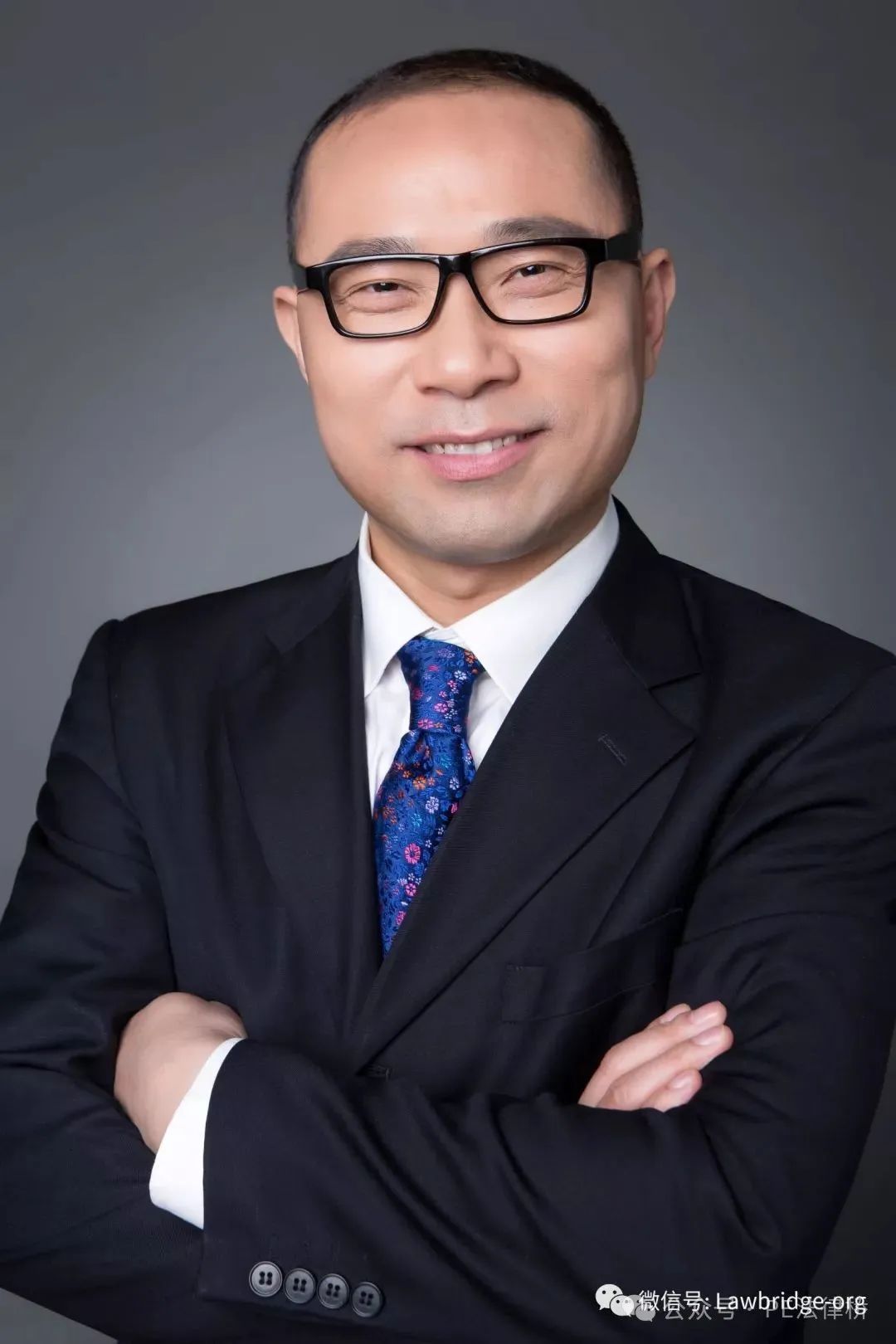
Email:
chambers.yang@dentons.cn
Leader of private equity and investment fund professionals in Dacheng China, member of the Capital Market Professional Committee, and member of the Shanghai Foreign Legal Talent Pool. Bachelor of Law from Fudan University (1992), Master of Law from the University of Science and Technology of Sydney (2001), and Master of Law from East China University of Political Science and Law (2001).
Lawyer Yang has been practicing for 29 years, specializing in legal services for private equity funds, investment and financing, and mergers and acquisitions, covering industries such as TMT, big finance, big health, real estate and infrastructure, exhibition industry, and manufacturing. Since 2004, he/she has been selected multiple times on the "Private Equity Fund" and "Company and Business" lists of The Legal 500, and has received special recommendations or comments from Asia Law profiles. Since 2016, he/she has been continuously selected as one of the "100 Outstanding Lawyers in Chinese Business" by the internationally renowned legal media China Business Law Journal, and has been awarded the title of "China's Annual Corporate Law Expert" by Leaders in Law 2021 Global Awards; Ranked in the recommended list of excellent lawyers and law firms recommended by the First China Famous Enterprise Law Society; Has won multiple awards such as Lawyer Monthly and Finance Monthly's China TMT Lawyer Award and China Mergers and Acquisitions Lawyer Award. Has the qualification to serve as an independent director of a listed company and is a part-time professor at the Law School of East China University of Science and Technology, a part-time supervisor at the Law School of Fudan University, a part-time graduate supervisor at East China University of Political Science and Law, a lecturer at the Private Equity President Class of Shanghai Jiao Tong University, and a lecturer at the Cross border Business Talent Training Class of the Shanghai Municipal Commission of Commerce. Published 16 monographs, including "Practical Operations in Risk Prevention and Control of Private Equity Investment Funds", "Practical Operations and Case Analysis of Legal Risk Prevention and Control throughout the Enterprise Process", and "Complete Operation Guide for Corporate Investment and Financing Model Process". Lawyer Yang's practice areas include companies, investment mergers and acquisitions, and private equity funds, capital markets, TMT, real estate and construction engineering, as well as dispute resolution in the aforementioned fields.
Author
SunZhen
Partner of Dentons (Shanghai) Law Firm

Email:
chambers.yang@dentons.cn
Leader of private equity and investment fund professionals in Dacheng China, member of the Capital Market Professional Committee, and member of the Shanghai Foreign Legal Talent Pool. Bachelor of Law from Fudan University (1992), Master of Law from the University of Science and Technology of Sydney (2001), and Master of Law from East China University of Political Science and Law (2001).
Lawyer Yang has been practicing for 29 years, specializing in legal services for private equity funds, investment and financing, and mergers and acquisitions, covering industries such as TMT, big finance, big health, real estate and infrastructure, exhibition industry, and manufacturing. Since 2004, he/she has been selected multiple times on the "Private Equity Fund" and "Company and Business" lists of The Legal 500, and has received special recommendations or comments from Asia Law profiles. Since 2016, he/she has been continuously selected as one of the "100 Outstanding Lawyers in Chinese Business" by the internationally renowned legal media China Business Law Journal, and has been awarded the title of "China's Annual Corporate Law Expert" by Leaders in Law 2021 Global Awards; Ranked in the recommended list of excellent lawyers and law firms recommended by the First China Famous Enterprise Law Society; Has won multiple awards such as Lawyer Monthly and Finance Monthly's China TMT Lawyer Award and China Mergers and Acquisitions Lawyer Award. Has the qualification to serve as an independent director of a listed company and is a part-time professor at the Law School of East China University of Science and Technology, a part-time supervisor at the Law School of Fudan University, a part-time graduate supervisor at East China University of Political Science and Law, a lecturer at the Private Equity President Class of Shanghai Jiao Tong University, and a lecturer at the Cross border Business Talent Training Class of the Shanghai Municipal Commission of Commerce. Published 16 monographs, including "Practical Operations in Risk Prevention and Control of Private Equity Investment Funds", "Practical Operations and Case Analysis of Legal Risk Prevention and Control throughout the Enterprise Process", and "Complete Operation Guide for Corporate Investment and Financing Model Process". Lawyer Yang's practice areas include companies, investment mergers and acquisitions, and private equity funds, capital markets, TMT, real estate and construction engineering, as well as dispute resolution in the aforementioned fields.
Author
Li JiaXin

Bachelor of Law from Fudan University, has participated in due diligence for selecting fund managers and establishing sub fund projects for multiple parent funds, due diligence for fund investment target companies, and daily legal services related to fund fundraising, investment management, and retirement.






















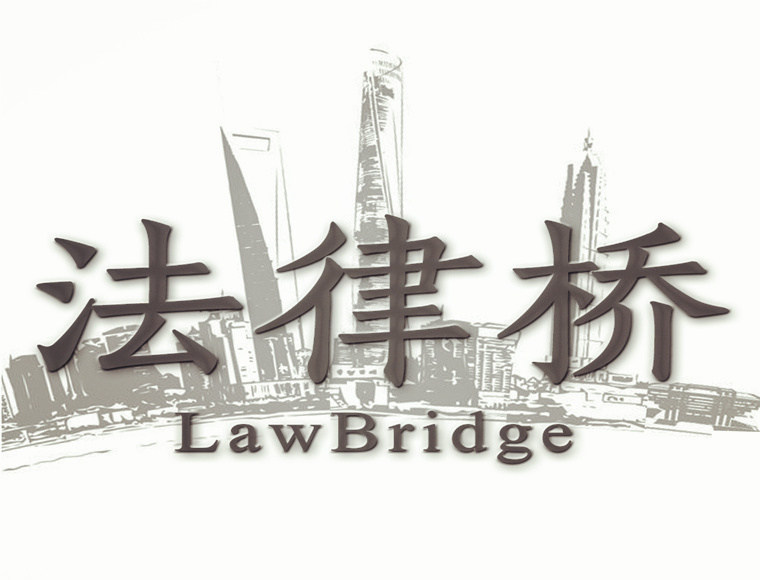
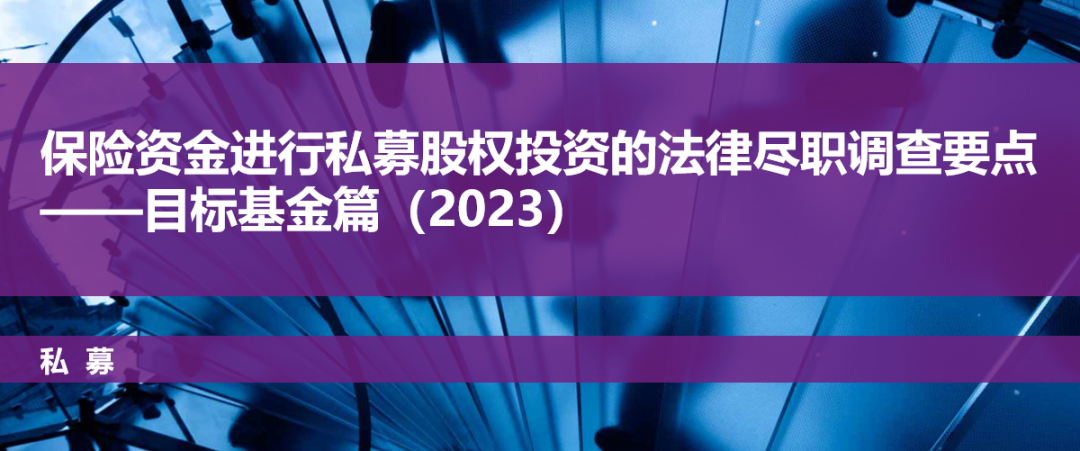
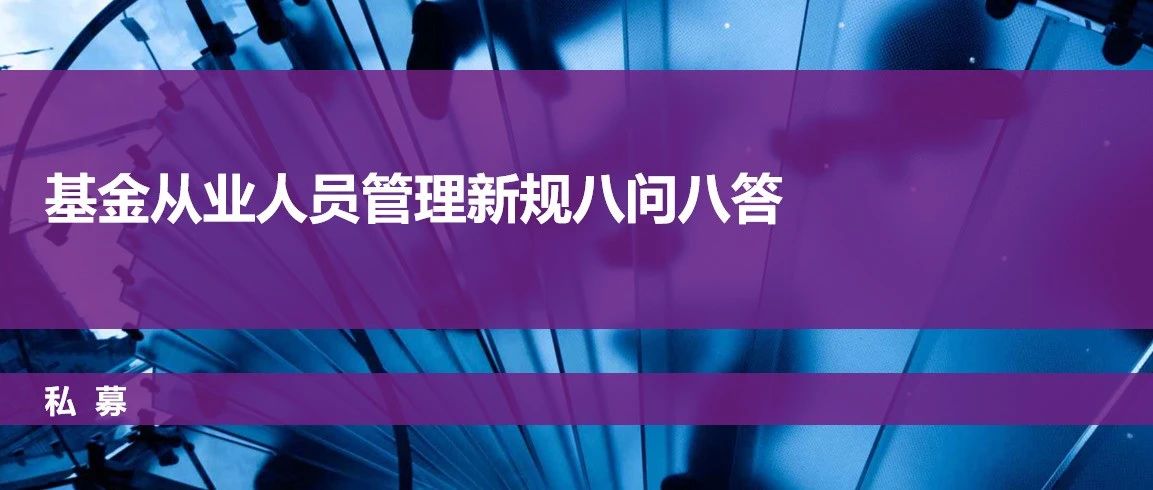





























First, please LoginComment After ~